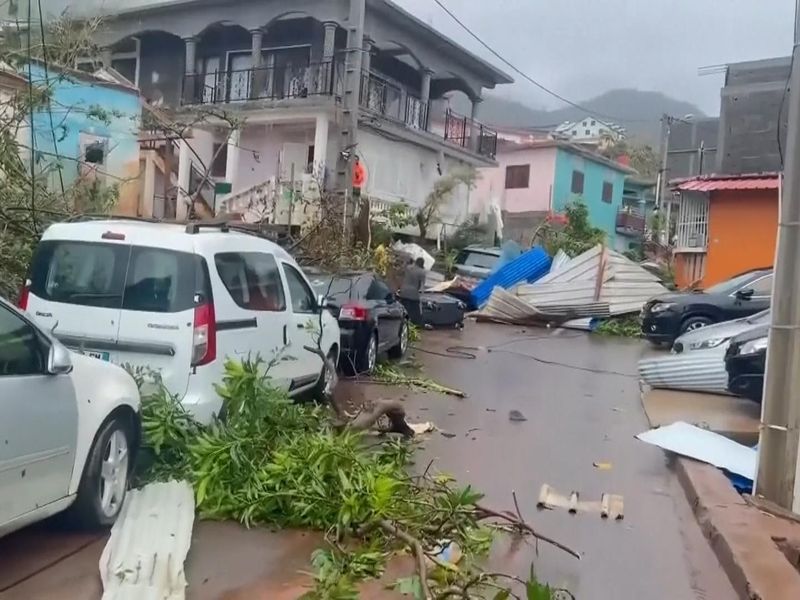The recent cyclone that struck French territory, marking a catastrophic event after nearly nine decades, has left widespread destruction in its wake. This natural disaster has not only devastated infrastructure but has also raised significant concerns regarding emergency preparedness and response strategies. The cyclone's intensity and unpredictability highlight the pressing need for enhanced climate resilience measures in vulnerable regions . As communities grapple with the aftermath, the focus shifts to recovery efforts and rebuilding initiatives that must address both immediate needs and long-term sustainability.
Mayotte lies in the Indian Ocean off the east coast of Africa, just west of Madagascar. Made up of two main islands, its land area is about twice the size of Washington DC.
Cyclone Chido, a category 4 storm, tore through the southwestern Indian Ocean over the weekend, impacting northern Madagascar before rapidly intensifying and slamming Mayotte with winds above 220 kilometers per hour (136 miles per hour), according to France’s weather service. It was the strongest storm to hit the islands in more than 90 years, Meteo-France said.
Chido then continued into northern Mozambique where it continued to cause damage, though the storm has now weakened.
French president Emmanuel Macron said: “My thoughts are with our compatriots in Mayotte, who have gone through the most horrific few hours, and who have, for some, lost everything, lost their lives.”
The cyclones bring the risk of flooding and landslides, but also stagnant pools of water that may later cause deadly outbreaks of cholera, dengue fever and malaria.
Studies say the cyclones are getting worse because of the climate emergency. They can cause large humanitarian crises in poor countries in southern Africa, which contribute a tiny amount to global heating, underlining their call for more help from rich nations to deal with the impacts of climate change.
Cyclone season in the region runs from December to March, and parts of the south-eastern Indian Ocean and southern Africa have been hit by a series of strong ones in recent years. Cyclone Idai killed more than 1,300 people in Mozambique, Malawi and Zimbabwe in 2019. Cyclone Freddy left more than 1,000 dead across several countries last year.
Moreover, the cyclone's impact extends beyond physical destruction; it disrupts social structures and economic stability. Residents are confronted with loss—of homes, livelihoods, and community cohesion. This situation underscores the importance of comprehensive disaster management plans that incorporate not just infrastructural repairs but also psychological support for affected populations . Such holistic approaches can facilitate more effective recovery processes while fostering resilience against future climatic events.
Read more
Mystery drone sightings continue in New Jersey
Mavericks Triumph Over Warriors in Record-Setting Game
Sarah H
Also on site :
- "The Food Babe" helps lead the charge against some food dyes
- Colin Jost jokes Harry and Meghan key to UK-US trade deal: ‘Britain demands we keep these two’
- Walton Goggins reacts to mean sex symbol headlines on Saturday Night Live

